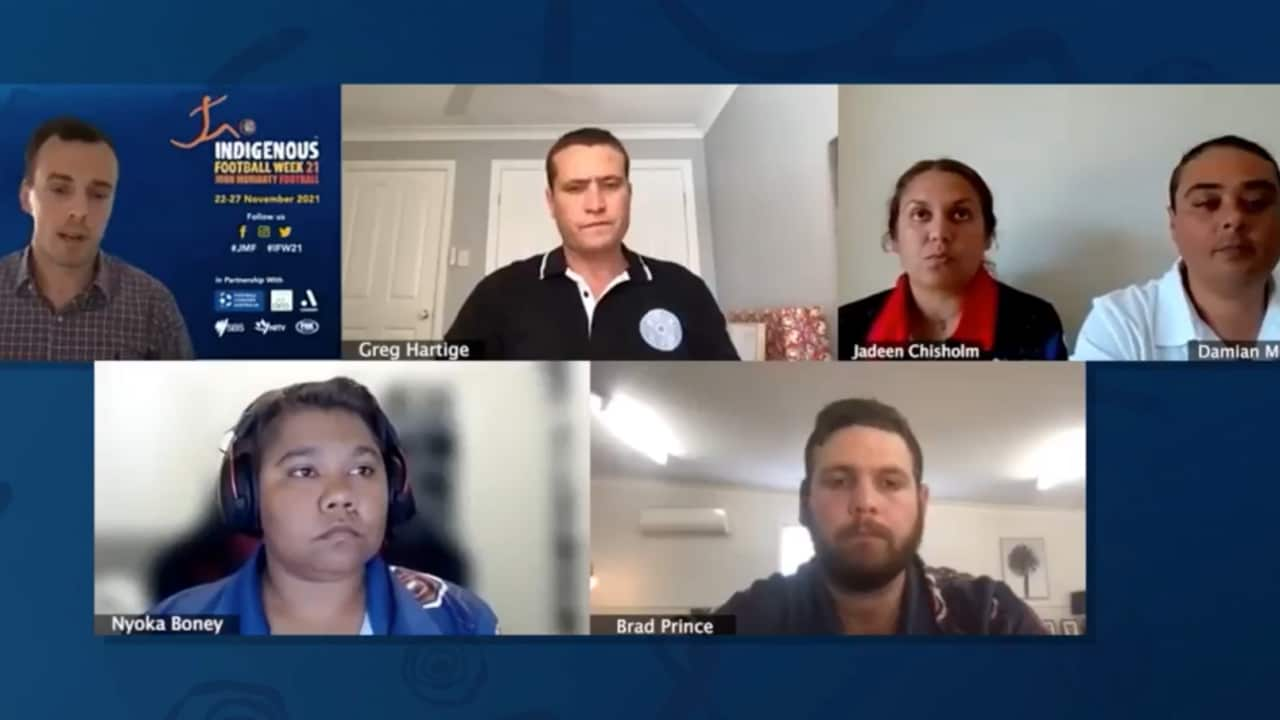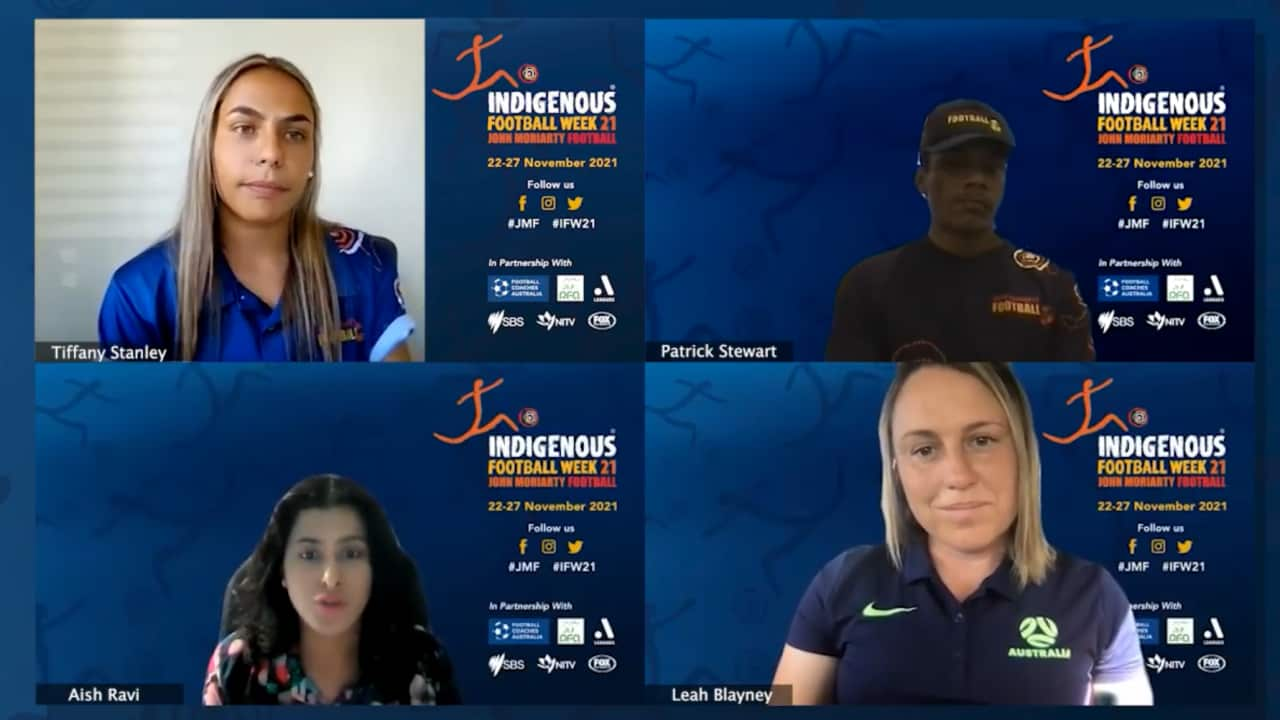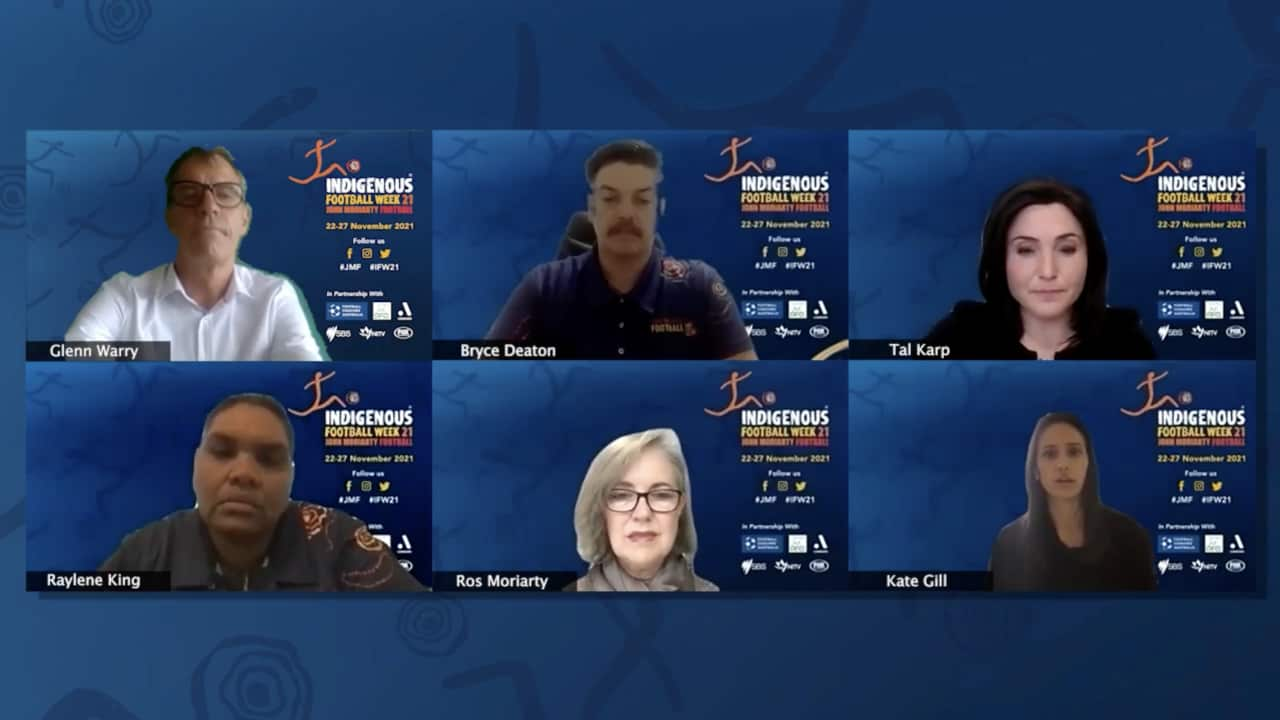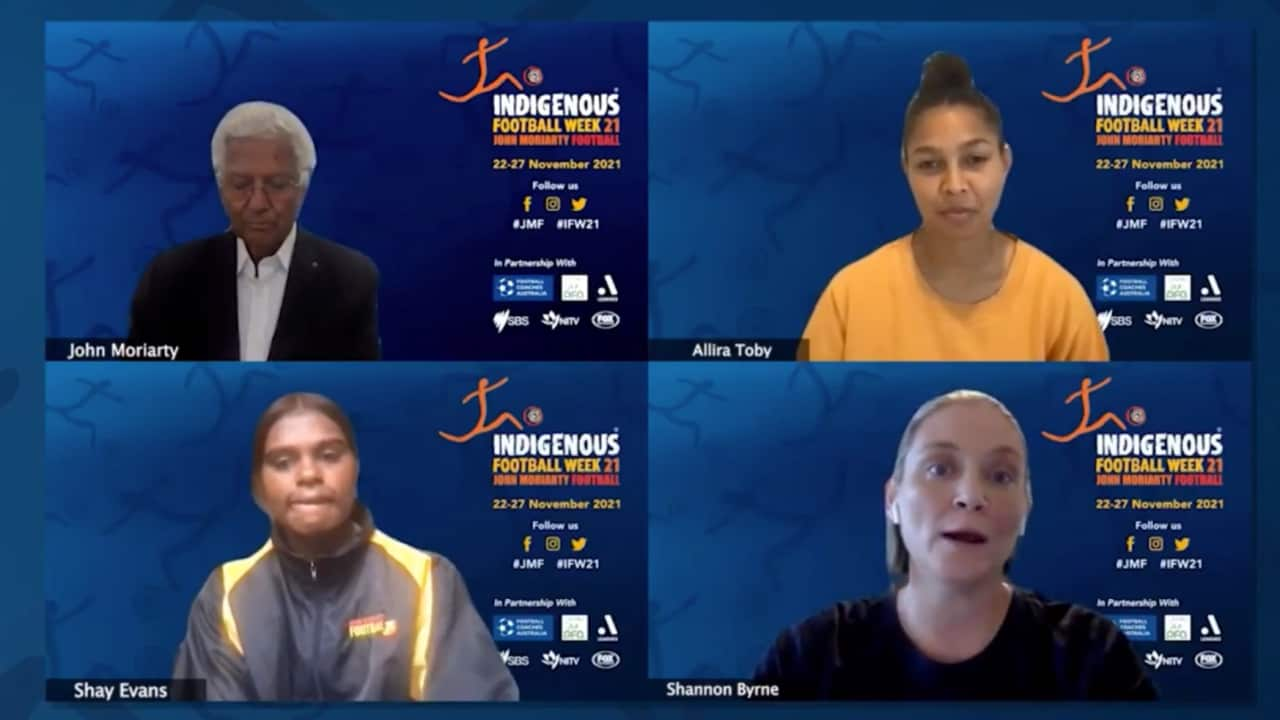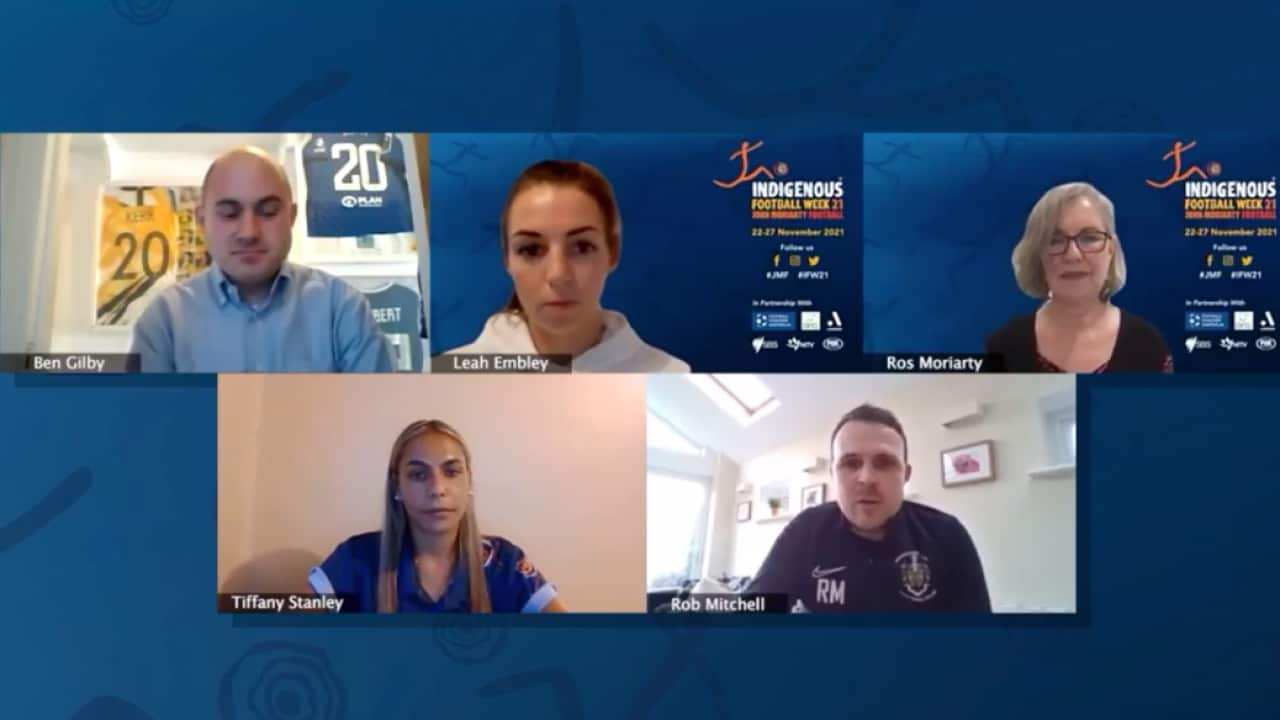Over 60 years after John Moriarty was the first Indigenous Australian to be selected for a national football team, the football program created by him continues to forge pathways for the next generation of Indigenous talent.
The John Moriarty Football initiative works with young Indigenous athletes aged 2 to 18 years throughout the year, aiming to build the benefits of football, health and education into their lives and break the cycle of intergenerational disadvantage. The work complements the larger aims of the Moriarty Foundation, a holistic organisation that is set up for the benefit of Indigenous children and communities.
November 22-27 will mark the sixth annual Indigenous Football Week (IFW), a John Moriarty Football (JMF) initiative. This year, it will feature a special focus on gender quality within football, an initiative that Ros Moriarty, Managing Director of the Moriarty Foundation, hopes offers a more inclusive place for everyone to come together.
“I think we know football, like most sports, is lagging when it comes to giving women a true opportunity to build a position in leadership, to bring girls through sport, to keep them in sport, and recognise the differences of how we need to cater to girls,” said Ros Moriarty. “Football as a sport has historically been male-dominated and there’s still a long way to go.
“At John Moriarty Football, we’ve always had a very strong approach to gender equality, simply because we believe that it’s right. We’ve got a 50-50 participation of boys and girls, football is great for having that split and those girls need role models.
“They need women in their lives, in football, not just to introduce them to the sport but to influence their lives and give them confidence. For that reason, we have an almost 50-50 gender split in coaches, which has been a strategy for a very long time.”
Operating since the program’s founding in Borroloola in 2011, JMF has been a positive force within remote communities with bases in Dubbo, Tennant Creek and Kuranda. In 2018, JMF was recognised globally as one of three finalists for the 2018 FIFA Diversity Award - the first Australian organisation to achieve the honour.
It’s a history of empowerment, transformation and success that has seen scholarship holders within the JMF program reach the top levels of the sport, with Jada Whyman and Shadeene (Shay) Evans being two exciting stars of the A-League Women. The pair are participating in the 2021 Indigenous Football Week as they have in past editions, with their generous spirit recognised by the young athletes in whose position they used to be.
“It’s really incredible to have our ambassadors on board like Shay and Jada whose own careers have such energy at the moment,” said Ros Moriarty. “It’s great for all our players, it’s not just girls that attend Matildas matches, and they can all see what they are achieving in their careers.
“The role model effect is a ripple effect, displaying that talent and aspiration, it’s a whole new level that kids can see and hope to be someday themselves.”
That level of passion and enjoyment is evident at the grassroots level, with accredited coach and IFW21 Ambassador Wiradjuri woman Tiffany Stanley talking of the budding football stars of tomorrow.
“They get very excited. Last year for the Indigenous Football Week, we ran a gala day, which was the first that we have run,” said Stanley. “The kids loved it. We had a team from Sydney come down as well as the (Western NSW FC) team in the Dubbo region.”
“The kids loved that and they’re really excited for that this year. It’s really good to see the kids out there enjoying themselves.
The 2021 edition of Indigenous Football Week will be celebrated in JMF communities in the Northern Territory, New South Wales and Queensland - with live streaming of events discussing gender equality within football on and on .
The week will see some of football's best take a deep dive into gender equality issues of women in football leadership and specific intersectional challenges and opportunities in football for Indigenous girls and women.
Indigenous Football Week - Facebook live events
Gunggari man Damian Munday, founder of Queensland Indigenous Football
Alyawarre woman Jadeen Chisholm, Program Coordinator with Queensland Indigenous Football
Darug man Greg Hartge, U16 Women’s NSW Football Institute Coach
Wiradurji woman Nyoka Boney, JMF Dubbo Community Football Coach
Wiradurji man Brad Prince, JMF Dubbo Community Football Coach
Host: Jamie Morriss, JMF Program Director
Leah Blayney, Head Coach of the Future and Young Matildas,
Aish Ravi, founder of Women’s Coaching Association
Wiradjuri woman Tiffany Stanley, JMF Dubbo Community Coach and IFW21 Ambassador
Wurumungu man Patrick Coleman, JMF Tennant Creek Community Coach and IFW21 Ambassador
Ros Moriarty, Hon. Managing Director of Moriarty Foundation and Chair of Football Australia’s Women’s Football Council
Raylene King, JMF Tennant Creek Community Coach
Bryce Deaton, JMF Dubbo Head Coach and Mentor
Glen Warry, CEO of Football Coaches Australia
Kate Gill, former Matilda and Co-CEO of PFA
Hosted by Tal Karp, Olympian and former Matilda
Marra woman Shadeene Evans, Adelaide United forward, Young Matilda and JMF Inaugural Scholarship holder
Kanulu/Gangulu woman Allira Toby, Canberra United striker
John Moriarty, co-founder of John Moriarty Football and the first Aboriginal footballer to be selected to play for Australia
Wiradjuri woman Tiffany Stanley, JMF Dubbo Community Coach
Ros Moriarty, Moriarty Foundation Honorary Managing Director and Chair of the Football Australia Women’s Football Council
Leah Embley, midfielder with Brighouse Town Women (UK)
Rob Mitchell, coach for Brighouse Town Women (UK)
Hosted by Ben Gilby, founder of Impetus

